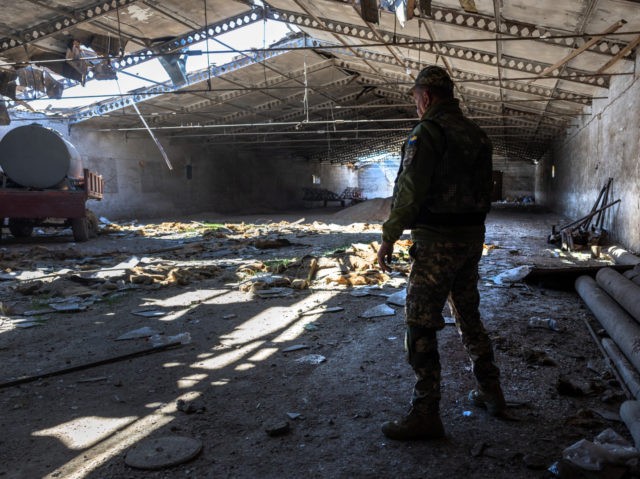A shortage of food due to the Ukraine crisis poses an “apocalyptic” threat to UK consumers, the UK’s central bank head has warned.
Andrew Bailey, the Governor of the Bank of England, has warned elected officials in the country that a food shortage caused by the ongoing war in Ukraine poses an “apocalyptic” threat to the UK.
Bailey said that shortages in wheat and cooking oils resulting from Ukraine being unable to export produce could lead to major inflationary pressures which would further stress the finances of British consumers, with Ukraine being responsible for a substantial share of the world’s trade in grains and sunflower oil.
Speaking to the UK’s Treasury Committee, the Bank of England tsar said that he and his officials believed that inflation would spike in Q4 of this year at around 10 per cent, but that a crisis caused by the likes of Russia cutting the EU off from its fuel supply, or from China further disrupting trade routes with COVID restrictions, could make matters much worse.
Food insecurity caused by the Ukraine war was also listed as another major foreign risk facing Britain, with Bailey telling MPs that while he was aware the Ukrainian Finance minister was optimistic about crop planting during the war, the fact that the country was struggling to export posed dangers to global food prices.
“I’m afraid the one I am going to sound — I guess — rather apocalyptic about is food,” the official said regarding the forthcoming problems facing Britain, noting that a global increase would hit the pockets of ordinary people in the country.
Despite the fact that others have also been warning about significant rises in the price of food for some months now, one UK government official said that he was “surprised” by the Bank of England governor’s statement about how dire the risks are for people in Britain.
“I was somewhat surprised to see that particular turn of phrase because obviously we can all see that prices can move… one way or another relatively speedily,” Sky News reports Conservative Party bigwig Brandon Lewis as saying.
“It’s not for me to comment on what [the bank of England] said other than say, yes, I was surprised to see that kind of terminology there – particularly in light of the fact that obviously food supplies for supermarkets… are ordered and bought a long way in advance,” he continued.
Governor Bailey also emphasised that while increases in food prices would negatively affect UK consumers, those in the developing world were even more at risk, mirroring warnings given by other officials internationally.
“[Food insecurity is] not just — I have to tell you — a major worry for this country, but a major worry for the developing world as well,” he said.
What was not mentioned by Bailey however was the fact that the global food trade is also under threat due to other factors, such as wheat crop failures in India as a result of local drought, which has, in turn, prompted the country’s government to ban most crop exports from the country.
The India ban has been cited as the principal cause of wheat prices hitting record highs in Europe on Monday.
All of this, in turn, means that those in the developing world may soon themselves struggling to obtain sufficient food to feed themselves and their families, with officials across the world warning of famine as a result of the soaring price of food.
“Acute hunger is soaring to unprecedented levels and the global situation just keeps on getting worse,” said David Beasley of the World Food Programme.
“Conflict, the climate crisis, COVID-19 and surging food and fuel costs have created a perfect storm — and now we’ve got the war in Ukraine piling catastrophe on top of catastrophe,” the ex-Republican Governor of South Carolina continued. “Millions of people in dozens of countries are being driven to the edge of starvation.”
“We urgently need emergency funding to pull them back from the brink and turn this global crisis around before it’s too late,” the official went on to warn.

COMMENTS
Please let us know if you're having issues with commenting.